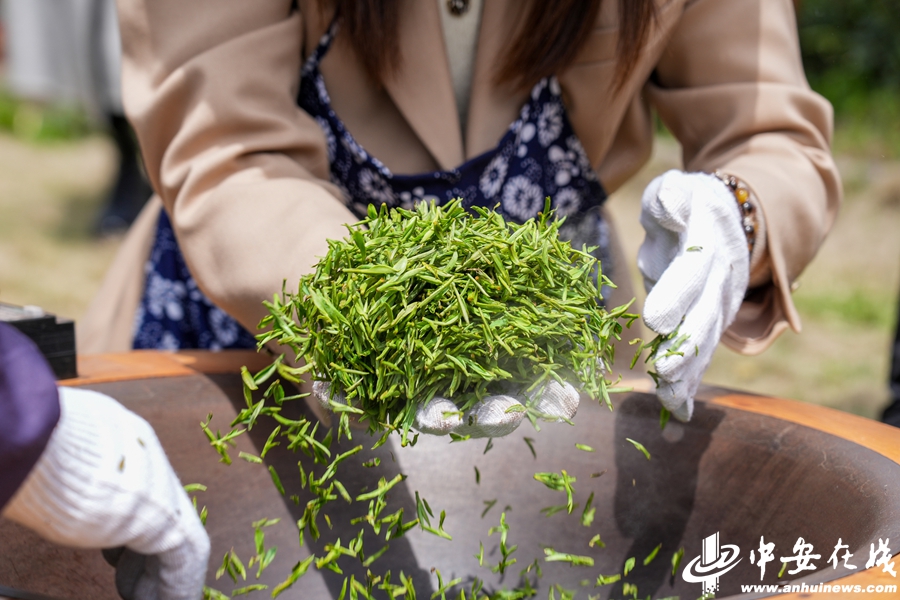|
"Shitai is a place worth visiting repeatedly. This is already my fifth trip to Shitai," said tourist Zhang Yan in an interview with reporters in Shitai County, Anhui Province. The water quality here is excellent, with a sweet taste, and the natural environment is pleasant, making it an ideal place for leisure and health preservation. With a pot of selenium-rich fragrant tea and a few good friends sitting leisurely by the banks of the Qiupu River, one can quietly admire the beautiful landscape. In the Selenium-rich Tea Expo Garden at the Western Huangshan Selenium-rich Agricultural Tourism Scenic Area in Shitai County, hundreds of acres of tea gardens are planted with 88 fine varieties of tea trees from all over the country. Visitors can get to know and understand different kinds of tea trees here. In addition, the Tea Expo Garden also has a visitor experience area where tourists can put on a straw hat, carry a tea basket, and personally experience the fun of picking early spring new tea. In the tea making experience area within the Tea Expo Garden, visitors can also personally roast a batch of newly picked tea leaves. 
Shitai County has a long tradition of tea planting. What's unique here is that the soil is naturally rich in selenium, so the selenium content in the tea produced is relatively high. It is reported that selenium has health benefits such as anti-oxidation and immune regulation. 


With the rapid development of the tea industry, Shitai County is also actively exploring the cultural connotations of tea. In 2019, the Selenium-rich Tea Expo Garden was successfully designated as an educational excursion base in Anhui Province. Up to now, it has received about 40,000 students. Cheng Wangde, the sales director of Western Huangshan Tea Industry Co., Ltd., told reporters that the current study courses include tea garden sightseeing, selenium-rich tea picking, intangible cultural heritage (ICH) handmade tea making, tea art classes, visits to the Selenium Culture Exhibition Hall, and tea factory industrial tours. "Our main purpose is to get children close to nature, move the classroom from the teaching room to the natural tea garden, shift them from book knowledge to field experience, let them witness the growth process of tea leaves with their own eyes, understand the origin of tea, and receive popular science education about tea knowledge," Cheng Wangde believes that through the processes of tea picking and making, tea culture can be better inherited through children.
Source: anhuinews.com
|